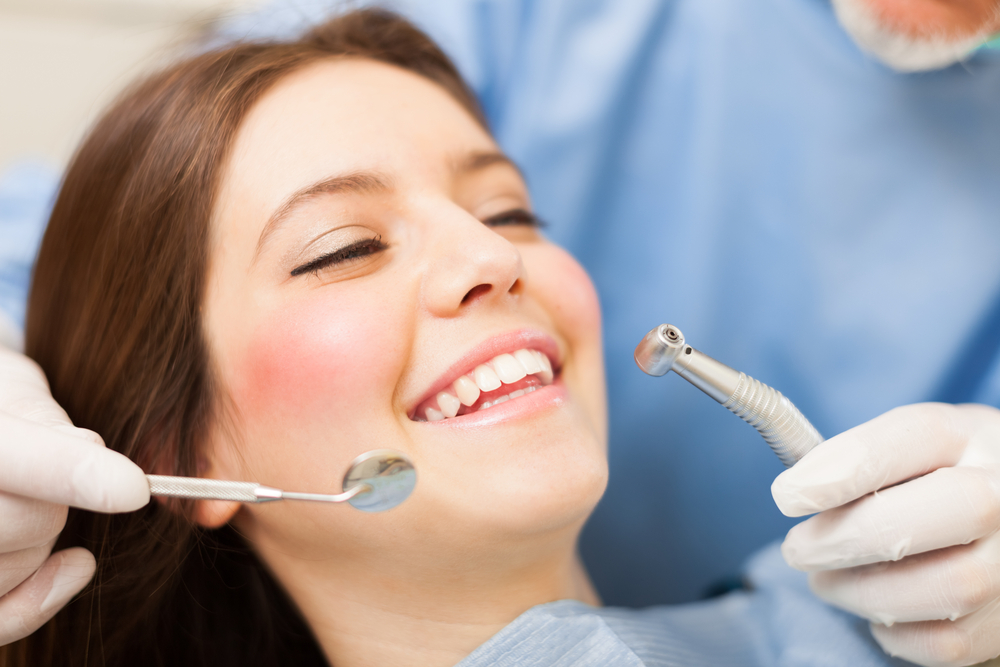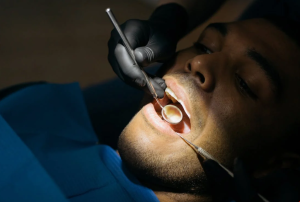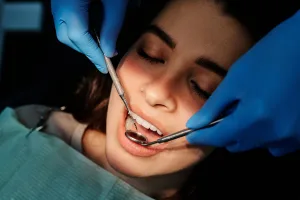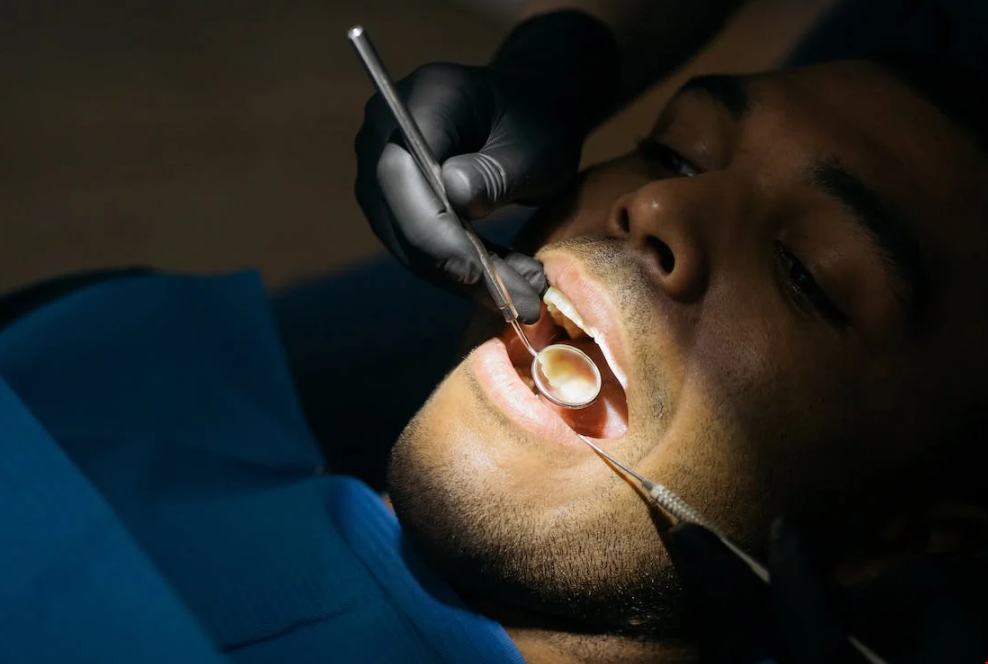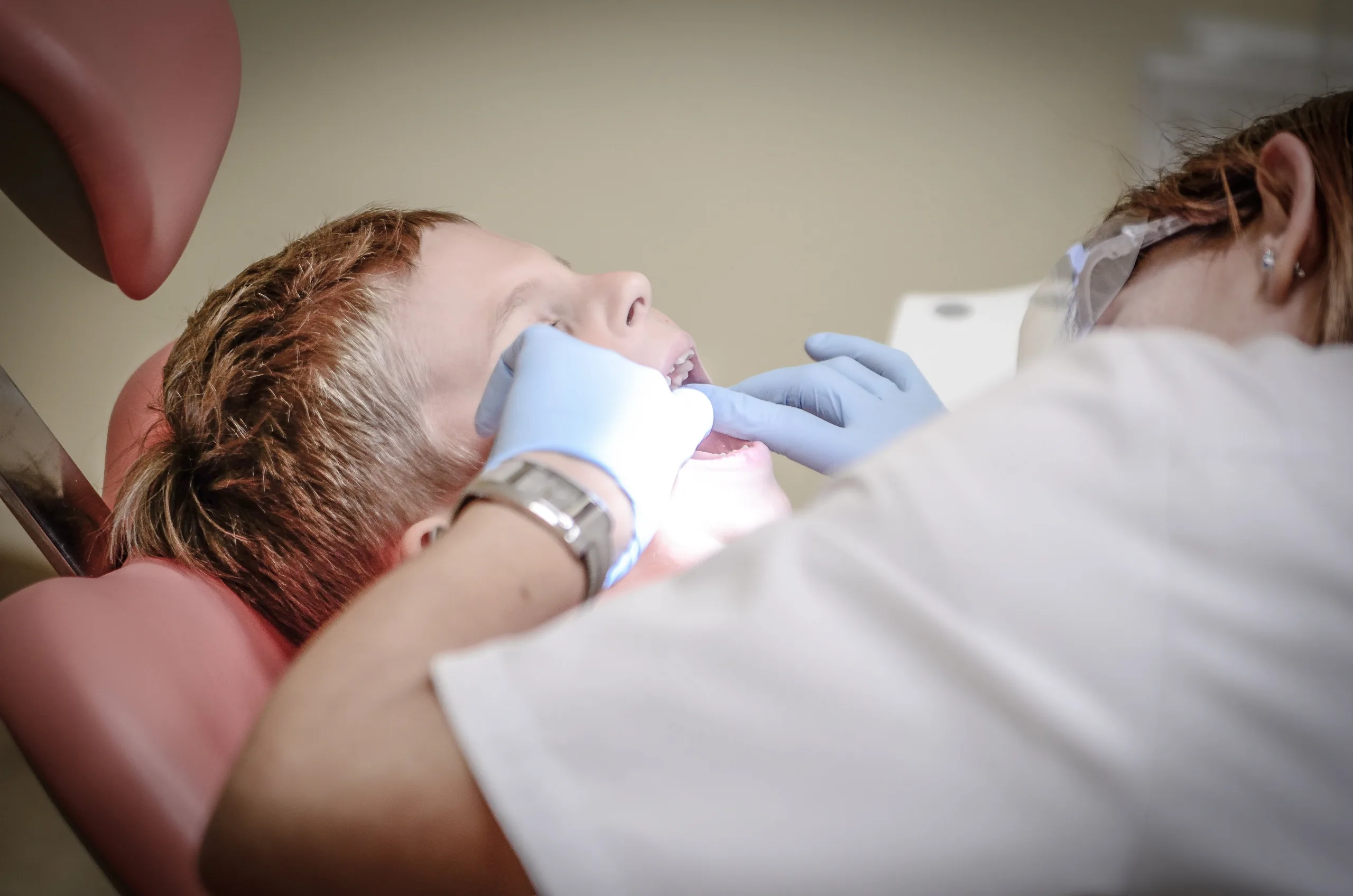Regular dental cleanings are an essential part of maintaining a healthy smile and preventing oral health issues such as tooth decay and gum disease. In this blog post, we’ll explore the necessary preparations for successful dental cleaning and examine how to get the most out of your appointment.
We’ll begin by discussing pre-cleaning preparation, including scheduling your appointment, brushing and flossing beforehand, eating a healthy meal, and bringing your insurance card. These steps can help make your visit smoother and more efficient.
Next, we’ll explore what to expect during the cleaning itself. We’ll cover topics such as communication with your dentist, following instructions carefully, asking questions if needed, listening to recommendations for optimal results, staying relaxed throughout the procedure, and avoiding distractions.
Finally, we will share some post-cleaning tips that can further enhance the benefits of regular dental cleanings. This includes following up with your dentist as recommended; maintaining good oral hygiene habits at home; using fluoride toothpaste and mouthwash regularly; avoiding sugary foods and drinks; and visiting your dentist every six months for routine checkups.
By understanding these key aspects of dental cleaning procedures in depth, you can take charge of your oral health journey toward achieving a beautiful smile that lasts a lifetime!
Choosing the Right Toothbrush and Toothpaste
Selecting an appropriate toothbrush is crucial for effective dental cleaning. Opt for a small- to medium-sized brush head with soft to medium multi-tufted round-ended nylon bristles, as they are gentle on gums while effectively removing plaque. Additionally, choose fluoride-based toothpaste that strengthens and protects teeth enamel against decay-causing bacteria.
Importance of Soft-Bristled Brushes in Preventing Gum Damage
Soft-bristled brushes are recommended by the American Dental Association (ADA) to help prevent gum damage, as they can clean teeth without causing any harm to gums or enamel. According to the American Dental Association (ADA), soft-bristled brushes can clean your teeth thoroughly without causing any harm to your gums or enamel. This ensures good oral hygiene habits while keeping your mouth clean and healthy.
Benefits of Fluoride Toothpaste in Fighting Tooth Decay
To maintain optimal oral health, brushing with fluoride toothpaste daily is essential to protect against cavities caused by harmful bacteria in plaque buildup. Fluoride is a natural mineral that helps strengthen tooth enamel and protect against cavities caused by harmful bacteria found in plaque buildup. The Centers for Disease Control and Prevention (CDC) states that using fluoride toothpaste can reduce the risk of developing cavities by 15-30%. By incorporating this type of product into your routine, you’ll be better equipped at preventing both gum disease and controlling plaque growth on your teeth surfaces.
Tips:
- Choose a small- to medium-sized brush head with soft to medium multi-tufted round-ended nylon bristles.
- Opt for fluoride-based toothpaste that strengthens and protects teeth enamel against decay-causing bacteria.
Selecting the correct toothbrush and toothpaste is critical for maintaining good oral hygiene. By flossing regularly and using interdental cleaning techniques, you can ensure your gums stay healthy in the long run.
Flossing and Interdental Cleaning Techniques
Incorporating flossing or interdental brushing into your daily routine ensures thorough removal of food particles trapped between teeth and under the gumline. Flossing has antibacterial properties that aid in preventing gum disease by eliminating harmful bacteria lurking within these hard-to-reach spaces.
How to Properly Floss for Optimal Oral Health
To achieve optimal oral health, follow these simple steps when flossing:
- Secure a length of dental floss between your middle fingers, ensuring there is roughly two inches in-between them.
- Hold the floss taut using your thumbs and index fingers, then gently slide it up-and-down between each tooth.
- Curve the floss around the base of each tooth to reach beneath the gumline. Be careful not to force or snap the floss as this can damage gums.
- Use a clean section of floss for each tooth to avoid spreading bacteria from one area to another.
Here’s a helpful guide on proper technique with visuals.
The Role of Interdental Brushes in Maintaining Healthy Gums
If you struggle with traditional dental floss or have wider gaps between teeth, interdental brushes may be an excellent alternative. These small brushes are designed specifically for cleaning tight spaces where regular toothbrushes cannot reach effectively. Using an interdental brush helps remove plaque buildup along with food debris that might lead to bad breath, cavities, or even worse – gum diseases like gingivitis and periodontitis.
To use an interdental brush:
- Select the appropriate size of the brush that fits comfortably between your teeth. Your dentist can help you choose the right one for your needs.
- Insert the brush gently into spaces between teeth, moving it back and forth to clean effectively without causing damage to gums or tooth enamel.
- Rinse the brush after each use and replace it when the bristles become worn out or bent.
Learn more about using interdental brushes here.
By adopting good oral hygiene habits like flossing and interdental brushing, you’ll be well on your way to maintaining healthy gums, preventing gum disease, and controlling plaque buildup. This will help you avoid bad breath, tooth decay, and other oral health issues while maintaining a healthy smile.
Flossing and interdental cleaning methods are critical for keeping gums and teeth in good condition, so it’s important to use them accurately. In addition, utilizing fluoride-containing mouthwash can help provide an extra safeguard against cavities and gum disease; let’s explore how often we should use this item as well as advice on picking the appropriate one.
Using Fluoride Mouthwash for Extra Protection
Regular use of fluoride mouthwash can further enhance protection against both tooth decay and gum diseases when used according to instructions provided by your dental team or healthcare provider. This additional step helps control plaque buildup, freshen breath, and maintain overall oral health.
Recommended Usage Frequency for Maximum Benefits
To reap the full benefits of fluoride mouthwash, it is essential to follow a consistent routine. Most dentists recommend using mouthwash once or twice daily after brushing and flossing. It is essential to speak with a dental or medical professional prior to including any new product into your oral hygiene practice, as individual requirements may be different.
- Morning: Using fluoride mouthwash in the morning helps kick-start your day with a clean and refreshed feeling while providing an extra layer of protection against bacteria throughout the day.
- Night: Rinsing with fluoride mouthwash at night ensures that any remaining food particles are washed away, preventing overnight bacterial growth that could lead to bad breath and other oral health issues.
Tips on Selecting the Right Mouthwash Product
The market offers various types of mouthwashes catering to different preferences and requirements. Here are some tips on choosing the right one for you:
- Select a product containing fluoride: Opt for a fluoride-based formula designed specifically to strengthen teeth enamel against decay-causing bacteria.
- Consider alcohol-free options: Alcohol can cause a burning sensation and may not be suitable for everyone. If you experience discomfort, consider an alcohol-free mouthwash that still offers the benefits of fluoride protection.
- Avoid harsh ingredients: Steer clear of products containing harmful chemicals or irritants that could potentially damage your teeth and gums. Consult with your dentist if you have any concerns about specific ingredients.
- Taste preferences: Mouthwashes come in various flavors to suit individual tastes. Choose one that appeals to you, ensuring it contains essential active ingredients like fluoride for maximum oral health benefits.
For optimal oral health, incorporating a fluoride mouthwash into your daily routine is highly recommended. Remember always to consult with your dental team or healthcare provider before making changes to your regimen as they can offer personalized advice based on individual needs.
Using fluoride mouthwash regularly can help to protect your teeth from cavities and decay. With that in mind, let’s take a look at tongue-cleaning techniques for even fresher breath.
Tongue Cleaning Techniques
Brushing your tongue aids in eliminating odor-causing microorganisms responsible for bad breath. Maintaining good oral hygiene not only safeguards your teeth but also contributes to maintaining a beautiful smile while impressing your dentist during dental cleanings.
Proper Technique for Tongue Cleaning Using a Brush or Scraper
To effectively clean your tongue, you can use either a toothbrush or a specialized tongue scraper. Follow these simple steps:
- Stick out your tongue and inspect it in the mirror to identify any areas with visible buildup.
- Using a toothbrush, apply some fluoride toothpaste to its bristles and carefully brush in the direction of the tongue’s tip. Be sure not to press too hard as this may cause discomfort.
- If using a tongue scraper, start at the back of the tongue and gently scrape forward several times until all debris is removed. Rinse off any residue after each pass.
- Rinse your mouth thoroughly with water or an antibacterial mouthwash to remove loosened particles and bacteria.
Connection Between Tongue Cleanliness and Fresher Breath
A cleaner tongue plays an essential role in promoting fresher breath by reducing bacterial growth that leads to halitosis (bad breath). According to research conducted by PubMed Central, individuals who regularly cleaned their tongues experienced significant improvements in overall oral health, including reduced levels of volatile sulfur compounds which are known contributors to bad odors. By incorporating tongue cleaning into your daily oral hygiene routine, you can maintain good oral hygiene habits, prevent gum disease, and impress your dentist at Hillsborough Prime Dental during your next dental cleaning.
Daily tongue cleaning is essential for optimal oral hygiene and should be part of your daily routine to ensure good dental health. Going to the dentist regularly is essential for maintaining good oral health, as it provides a chance to discuss any issues or worries that could come up.
Regular Dental Visits & Open Communication with Your Dentist
Maintaining good oral hygiene habits and a healthy smile is not only about your daily routine but also involves regular dental visits. By scheduling consistent appointments with your dentist, you can ensure timely detection of potential problems that require professional intervention. Additionally, engaging in open communication with your dentist allows for personalized oral health regimens tailored according to individual needs.
Importance of Preventative Dental Care
Early detection of potential dental problems through preventative care is essential for achieving and sustaining good oral health. Regular check-ups allow dentists to monitor the state of your teeth and gums closely and provide appropriate treatments when necessary. The ADA recommends that people should visit the dentist on a bi-annual basis for checkups and cleanings as part of an effective preventative care program.
- Detecting cavities: Early detection and treatment can prevent further damage caused by tooth decay.
- Gum disease prevention: Professional cleaning helps remove plaque buildup that contributes to gum inflammation and infection.
- Tartar removal: Tartar cannot be removed through regular brushing alone; dentists use specialized tools during cleanings for this purpose.
- Bite evaluation: Regular examinations help identify any bite irregularities requiring orthodontic treatment or adjustments.
How Often You Should Visit the Dentist for Optimal Oral Health
The frequency at which you should visit the dentist depends on your individual oral health needs. While the general recommendation is to schedule appointments every six months, some patients may require more frequent visits due to specific risk factors or ongoing treatments. It’s essential to discuss your unique circumstances with your dentist and follow their recommendations for maintaining a healthy smile.
Factors that may influence how often you need dental check-ups include:
- Age: Children and older adults are generally at higher risk of developing oral health issues.
- Gum disease history: Patients with a history of gum disease may require more frequent monitoring and cleanings.
- Pregnancy: Hormonal changes during pregnancy can increase the risk of gum inflammation, making regular dental care even more critical.
In conclusion, establishing good oral hygiene habits and scheduling regular dental visits not only contribute to a healthier mouth but also help prevent tooth decay, gum disease, and bad breath. By engaging in open communication about personalized treatment plans, addressing warning signs promptly, and adhering to professional advice, you can maintain optimal oral health while enjoying a beautiful smile throughout life. Using fluoride toothpaste and flossing daily can help remove plaque and keep your mouth clean, while regular dental cleanings can help prevent gum disease and keep your gums healthy.
Dental Cleaning FAQs
What is the Importance of Dental Cleaning?
Dental cleaning plays a crucial role in maintaining oral health by removing plaque and tartar buildup, and preventing tooth decay, gum disease, and bad breath. Regular cleanings also allow dentists to detect early signs of potential issues such as cavities or oral cancer. Additionally, professional cleanings can help maintain overall systemic health by reducing inflammation-causing bacteria in the mouth.
What is the Most Important Part of a Dental Cleaning?
The most critical aspect of a dental cleaning is the removal of plaque and tartar from teeth surfaces using specialized instruments like scalers and curettes. This process helps prevent tooth decay, gum disease, and halitosis while promoting healthier gums and stronger teeth. It’s essential to combine regular professional cleanings with proper at-home oral hygiene practices for optimal results.
How Effective is Dental Cleaning?
Dental cleanings are highly effective when performed regularly alongside good at-home oral care habits. They remove accumulated plaque and tartar that cannot be eliminated through brushing alone while helping prevent tooth decay, gum disease, bad breath, and other oral complications. Dental professionals can also identify early warning signs during these visits to address potential issues before they become severe problems.
How Often Does the ADA Recommend Cleaning?
The American Dental Association (ADA) recommends visiting your dentist for professional dental cleanings every six months; however, some individuals may require more frequent visits depending on their unique risk factors such as periodontal status or medical conditions affecting their oral health. Consult your dentist for personalized recommendations.
At Hillsborough Prime Dental, we believe that good oral hygiene habits are essential for maintaining a healthy smile. We recommend brushing twice a day with fluoride toothpaste, flossing daily, and using an antiseptic mouthwash to keep your mouth clean and your gums healthy. By controlling plaque and preventing gum disease, you can enjoy a beautiful smile and optimal oral health for years to come.
Conclusion
To ensure good oral health, it is important to establish a routine of proper hygiene habits and regular dental cleanings. Routine dental check-ups can help take away plaque and avert gum illness, tooth decay, and foul breath. By following the pre-cleaning preparation tips, communicating with your dentist during the cleaning procedure, and implementing post-cleaning tips at home, you can ensure optimal results for your oral health.
Don’t neglect your dental cleaning needs any longer! Schedule an appointment with Hillsborough Prime Dental today to keep your smile healthy and bright.

